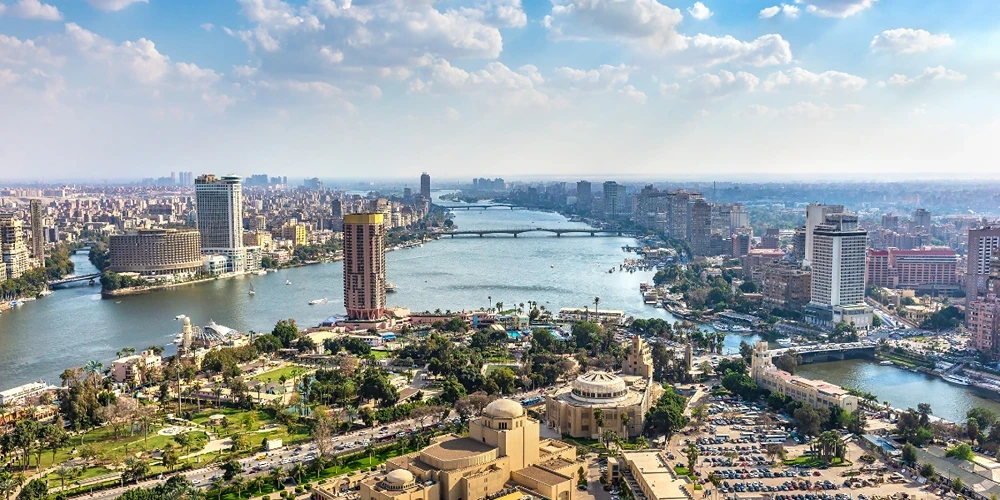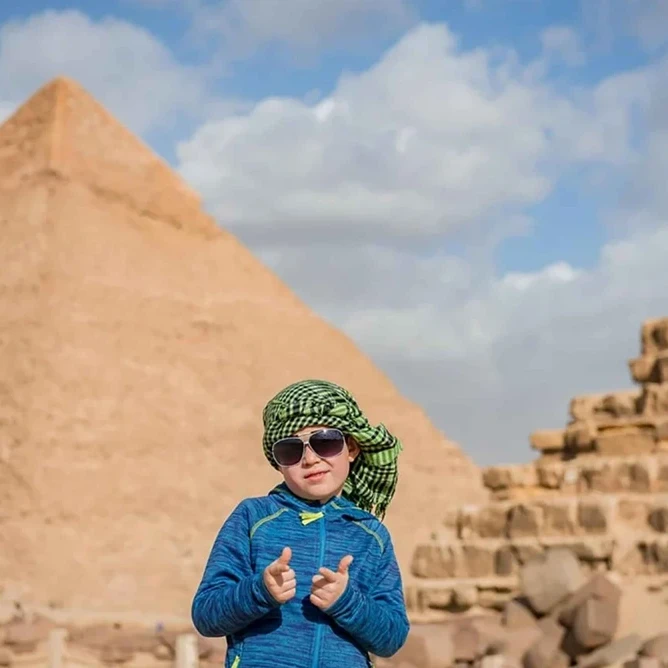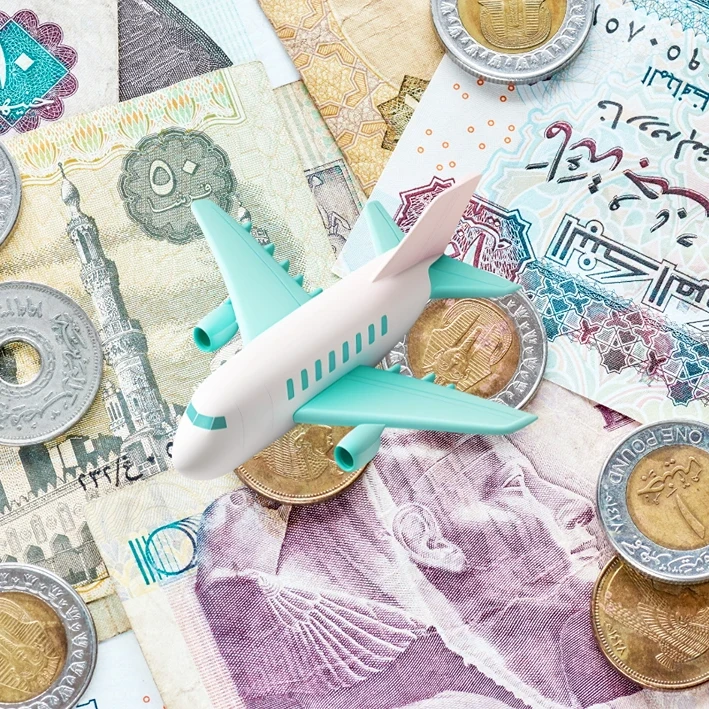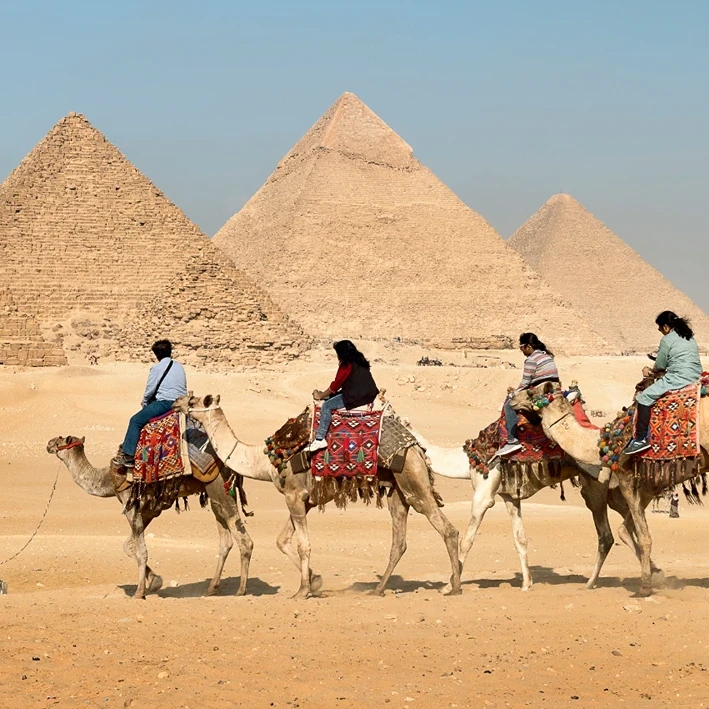Ever felt overwhelmed by the chaos of navigating a foreign country? If you’re planning a trip to Egypt, getting familiar with its transportation options can save you a lot of headaches and money. From the efficient Cairo Metro to the less predictable bus services, Egypt offers a range of travel options to suit different needs and budgets. This article dives deep into everything you need to know about getting around in Egypt, providing you with actionable tips and insights to make your journey smooth and stress-free.
Table of Contents
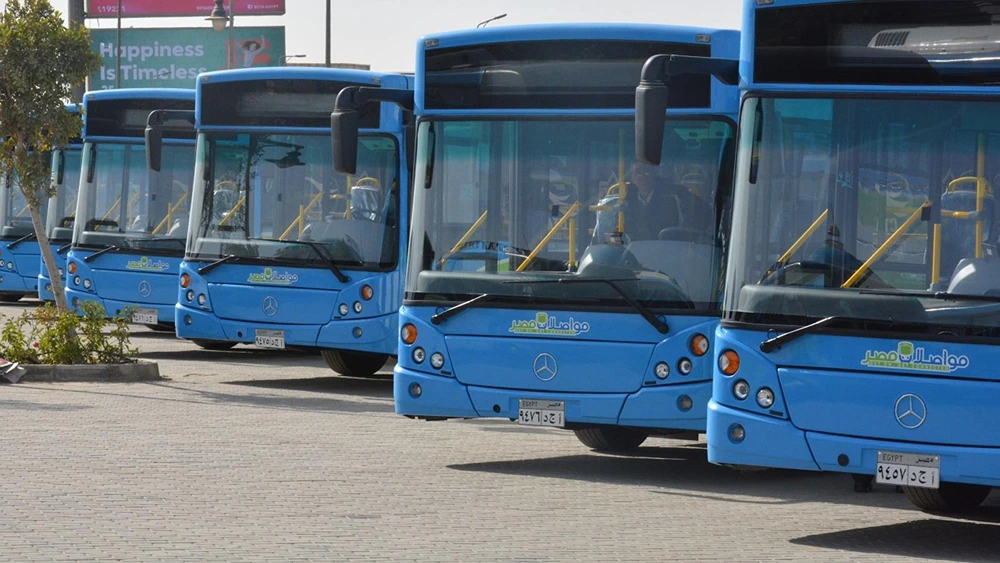
Public Transportation Options in Egypt
Public transportation in Egypt is both accessible and cost-effective, making it a viable option for budget-conscious travelers. The network includes buses, metros, and trains, each offering unique advantages. Buses, while affordable, tend to be crowded and less reliable. For long-distance travel, trains are a cost-effective choice, with first-class tickets from Cairo to Alexandria priced around 100-150 EGP. Although flights are faster for longer routes like Cairo to Aswan, they are generally more expensive.
The Cairo Metro stands out as one of the most efficient and affordable modes of transport within the city. Tickets range from 3 to 7 EGP depending on the number of stops. Operating from 6 am to 11:30 pm, the metro covers key areas, providing a quick and reliable way to navigate Cairo’s often congested streets. This makes it a preferred choice for daily commuters and tourists alike.
- Route 1: Cairo to Giza – 5 EGP
- Route 2: Cairo to Maadi – 10 EGP
- Route 3: Alexandria to Marsa Matruh – 50 EGP
- Route 4: Luxor to Aswan – 30 EGP
- Route 5: Sharm El Sheikh to Dahab – 40 EGP
- Route 6: Hurghada to El Gouna – 20 EGP
Egyptian National Railways offers a reliable and cost-effective option for long-distance travel. Trains connect major cities like Cairo, Alexandria, Luxor, and Aswan, making it easier for travelers to explore the country. The trains are generally punctual and offer various classes of service, ensuring comfort for all budgets. For example, a first-class ticket from Cairo to Alexandria costs around 100-150 EGP, providing a comfortable and scenic way to travel between these two bustling cities.
Navigating Cairo: Tips and Tricks
Navigating Cairo’s traffic can be daunting due to its heavy congestion and chaotic driving conditions. The Cairo Metro offers a practical solution for avoiding the city’s notorious traffic jams. Operating from 6 am to 11:30 pm, the metro covers most key areas, providing an efficient and affordable alternative to road travel. Tickets range from 3 to 7 EGP depending on the number of stops, making it a preferred choice for both daily commuters and tourists. Utilizing the metro can save significant time and reduce the stress associated with road traffic.
- Agree on a fare before starting the ride.
- Use taxis with meters whenever possible.
- Avoid overly friendly drivers offering unsolicited help.
- Be cautious of drivers who suggest detours or additional stops.
- Familiarize yourself with average fare rates for common routes.
Ride-hailing apps like Uber and Careem offer reliable and safe alternatives to traditional taxis. These apps provide transparent fare structures, reducing the risk of being overcharged. With fares starting at around 10-15 EGP for short trips, they offer a cost-effective solution for navigating Cairo. Additionally, these services allow you to track your route in real-time and share trip details with friends or family, enhancing overall safety and peace of mind.
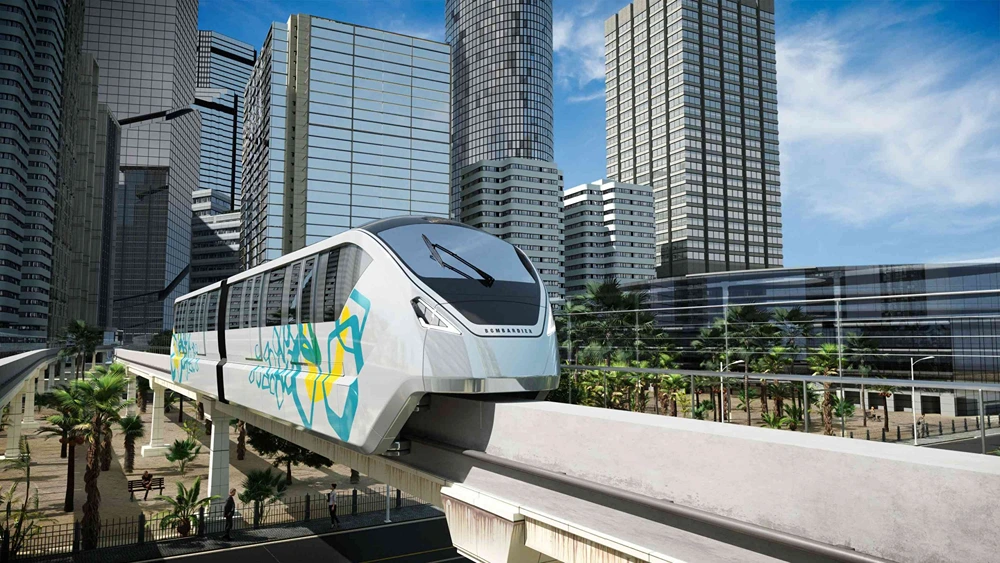
Transportation Between Major Egyptian Cities
Trains are a popular choice for intercity travel in Egypt, offering a cost-effective and scenic way to move between major cities. The Egyptian National Railways operates several key routes, such as Cairo to Alexandria, Luxor, and Aswan. For example, a first-class ticket from Cairo to Alexandria costs approximately 100-150 EGP and provides a comfortable and efficient travel experience. Trains are generally reliable and offer various classes of service to suit different budgets, making them an ideal option for long-distance travel.
For those who prefer quicker travel, domestic flights are available but tend to be more expensive. EgyptAir and Nile Air are the primary airlines operating within the country. Common routes include Cairo to Luxor, Cairo to Aswan, and Cairo to Sharm El Sheikh. Ticket prices typically range from 1,000 to 2,500 EGP, depending on the season and how far in advance the booking is made. While flights are faster, the higher cost can be a limiting factor for some travelers.
| Mode of Transport | Route | Cost | Duration |
| Train | Cairo to Alexandria | 100-150 EGP | 2-3 hours |
| Train | Cairo to Luxor | 200-300 EGP | 9-10 hours |
| Flight | Cairo to Aswan | 1,500-2,500 EGP | 1.5 hours |
| Flight | Cairo to Sharm El Sheikh | 1,000-2,000 EGP | 1 hour |
| Coach | Cairo to Hurghada | 150-250 EGP | 6-7 hours |
| River Cruise | Luxor to Aswan | 3,000-5,000 EGP | 3-4 days |
Alternative travel options, such as coaches and river cruises, offer unique experiences. Companies like GoBus provide reliable and comfortable coach services between cities like Cairo and Hurghada, with tickets costing around 150-250 EGP. For a more scenic journey, river cruises on the Nile run between Luxor and Aswan, taking 3-4 days and costing between 3,000 to 5,000 EGP. These cruises offer a leisurely way to explore Egypt’s historical sites while traveling in comfort.
Car Rentals and Driving in Egypt
Car rentals in Egypt are readily available, with daily rates ranging from 300 to 600 EGP, excluding fuel. Major rental companies operate in cities like Cairo, Alexandria, and tourist hotspots. While renting a vehicle offers the freedom to explore at your own pace, it’s essential to consider the challenging driving conditions. Egyptian traffic can be chaotic, and the road quality may vary significantly. Those unfamiliar with local driving habits may find navigating the streets stressful.
- Stay vigilant and drive defensively.
- Adhere to local speed limits and traffic signs.
- Avoid driving at night due to poor visibility and unlit roads.
- Be cautious of pedestrians and animals crossing the road.
- Use navigation apps to avoid getting lost and to find the best routes.
Given the challenging road conditions and traffic, hiring a private driver is often recommended for a safer travel experience. Private drivers are familiar with local routes and driving norms, reducing the stress and risk associated with self-driving. This option allows travelers to focus on enjoying their trip without the added pressure of navigating Egypt’s bustling streets.
Using Taxis and Ride-Hailing Apps in Egypt
Traditional taxis in Egypt are widely available and can be a convenient way to get around, but they come with certain challenges. One of the primary issues is fare negotiation. It’s crucial to agree on a fare before starting the journey or ensure the meter is used. For instance, a short ride in Cairo typically costs around 20-50 EGP. However, some drivers may start with higher prices, so knowing average rates for common routes can help in bargaining. Additionally, while taxis are generally safe, opting for those with meters can reduce the risk of being overcharged.
Ride-hailing apps like Uber and Careem have gained popularity in Egypt’s major cities due to their reliability and safety. The fare structures in these apps are transparent, reducing the need for negotiation. Fares for short trips start at around 10-15 EGP, making them a cost-effective alternative to traditional taxis. These apps also offer the advantage of tracking your route in real-time and sharing trip details with friends or family, enhancing overall safety. Moreover, ride-hailing services often have better-maintained vehicles and more professional drivers compared to traditional taxis.
To avoid common scams and ensure a smooth experience when using ride-hailing apps, follow a few key tips. First, always check the driver’s details and vehicle information provided by the app before getting in. This ensures you are in the correct car. Second, avoid accepting unsolicited rides from drivers outside the app, as this can lead to overcharging or safety issues. Lastly, share your trip details with someone you trust, especially if traveling alone or at night. This not only provides peace of mind but also an added layer of security.
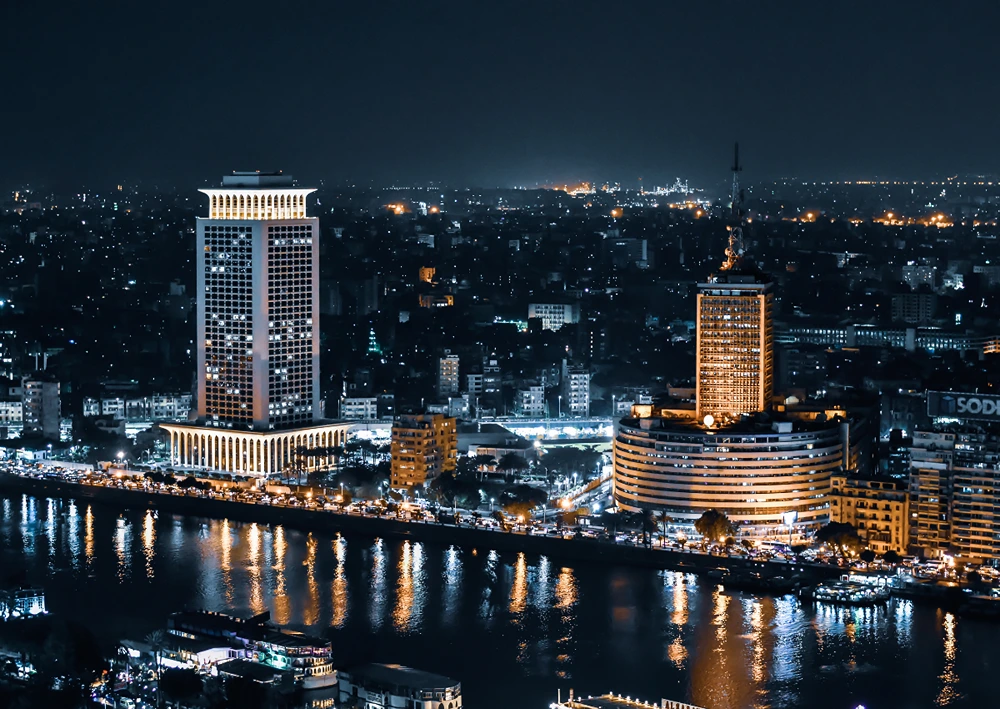
Safety Tips for Traveling in Egypt
When traveling in Egypt, general safety considerations are paramount. Although the country is relatively safe for tourists, it’s essential to remain vigilant. Awareness of your surroundings can go a long way in preventing minor incidents. Always keep your belongings secure and avoid displaying valuable items publicly. Staying in well-lit and populated areas, especially at night, is advisable. Egypt has extensive security measures, including numerous checkpoints where passenger details are recorded, adding an extra layer of safety.
- Asking for Tips for Minor Favors: Be wary of individuals offering unsolicited help and then demanding a tip.
- Misleading Tourists About Directions: Verify directions with multiple sources to avoid being misled.
- Overcharging for Camel or Horse Rides at the Pyramids: Negotiate and agree on prices upfront.
- Fake Tourism Police: Always ask for identification and verify credentials.
- Phony Souvenir Sellers: Avoid buying souvenirs from overly persistent sellers.
- Inflated Restaurant Bills: Check your bill carefully and clarify any discrepancies before paying.
- Taxi Fare Overcharging: Use taxis with meters or agree on a fare before starting the journey.
Respecting local customs and cultural norms is crucial for a smooth travel experience in Egypt. Dress modestly, especially when visiting religious sites, to show respect for local traditions. Women should consider covering their shoulders and knees. Understanding and practicing local etiquette can also enhance interactions with residents. Tipping, known as “baksheesh,” is customary for many services in Egypt. It’s generally expected to tip for good service in restaurants, hotels, and even for small favors. By adhering to these cultural norms, travelers can ensure a respectful and enjoyable visit.
Cost and Budgeting for Transportation in Egypt
Public transportation in Egypt is generally the most cost-effective way to get around. For instance, the Cairo Metro costs between 3-7 EGP per trip, depending on the number of stops. Buses are also affordable but can be less reliable. Domestic flights are a pricier option, with tickets ranging from 1,000 to 2,500 EGP. Renting a car will set you back around 300-600 EGP per day, excluding fuel. Taxis and ride-hailing apps like Uber and Careem offer more affordable options for short distances, with fares starting at around 10-15 EGP.
- Use the Cairo Metro for short trips to save money.
- Opt for buses for the cheapest long-distance travel.
- Book domestic flights well in advance to get the best prices.
- Consider shared ride options in apps like Uber and Careem.
- Always negotiate taxi fares before starting the trip.
For frequent travelers, utilizing discount cards and passes can result in significant savings. Many public transportation systems offer passes that provide unlimited travel for a fixed period. These passes can be especially beneficial for those who plan to use public transport extensively. Additionally, some airlines offer frequent flyer programs that can help reduce the cost of domestic flights over time. By planning ahead and leveraging these discounts, travelers can make their journey through Egypt more budget-friendly.
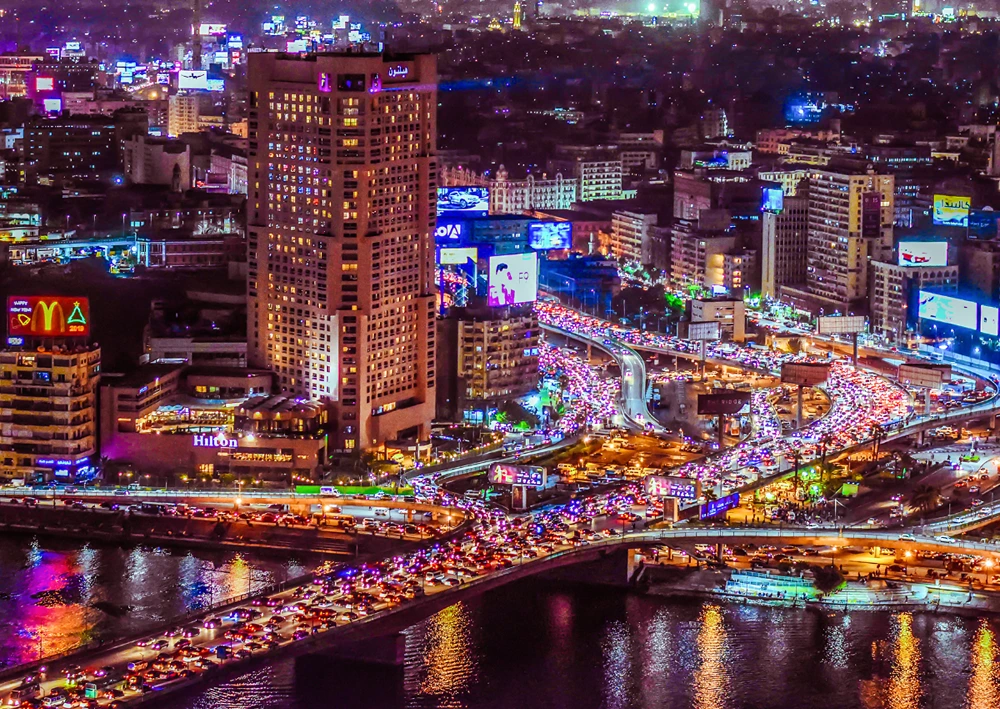
Final Words
Navigating Egypt’s transportation landscape offers various options, from the cost-effective Cairo Metro to extensive bus routes and reliable train services. The Cairo Metro stands out for its efficiency and affordability, while train travel provides a practical means to cover long distances.
Despite the challenges of traffic, ride-hailing apps offer a convenient solution for getting around in Cairo. Renting a car is feasible, but hiring a private driver can ensure a safer experience.
By understanding these transportation options, travelers can effectively manage getting around in Egypt reliably and affordably.
FAQ
Hazel Wall is a passionate traveler, writer, and explorer dedicated to sharing her experiences and insights with fellow adventurers. With a background in journalism and a deep love for discovering new cultures, Hazel has journeyed across continents, immersing herself in diverse landscapes and traditions.


